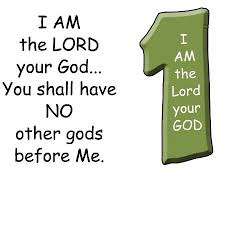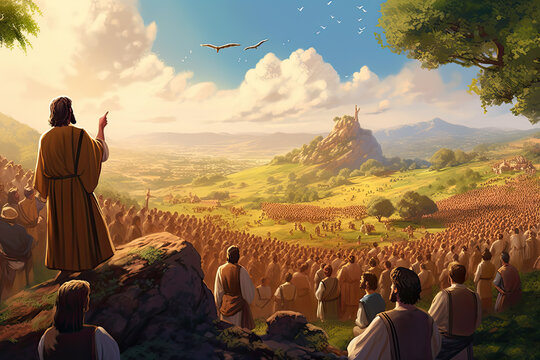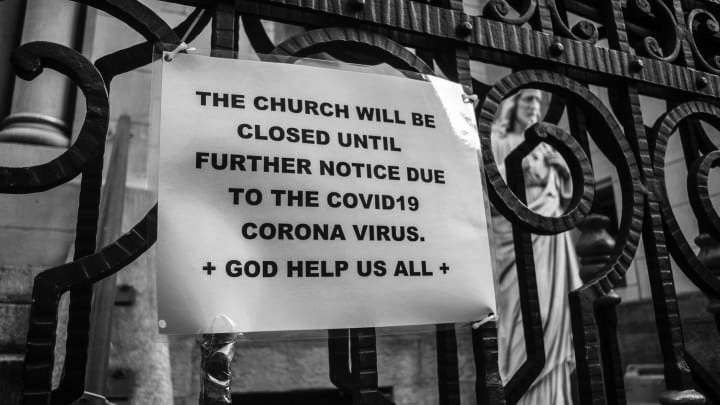

The FIRST commandment - I am the Lord your God; You shall have no other gods before me.
Dr. K. P. Mathew
God approaches humanity in a personal way.
He used divine words and acts to give directions through His prophets and servants at different times of history. But there are different forms of directions coming from man made gods which change according to religions and cultures. Hence humanity fails to understand the meaning of life and the purpose for which it was designed.
The Ten Commandments are given amidst the marvelous experiences of going through the Red Sea, of seeing the waters gush forth out of the rock at a time of great thirst, of being fed balanced food that fell each day to nourish their bodies. God provided explanations along with the Ten Commandments and placed them in the framework of the Word, the Bible. God wrote the Ten Commandments on tablets of stone and handed them over to Moses.
Moses emphasizes to his people the extreme importance of explaining these laws to their children. Parents were entrusted with the tremendous responsibility to discuss and talk to their children about the wonders of God that they had seen and known in their early days.
We live in a rapidly changing age. The moral climate surrounding our children is not like the temptations or wickedness that we or our ancestors faced. Here the teaching of the Ten Commandments in our churches and society is very relevant.
The first commandment is the one that is basic to all other commandments:
“I am the Lord your God, you shall have no other gods before me” (Ex.20:2-3). Though God revealed Himself as Yahweh, the Redeemer in delivering the people from Egypt, they could not serve God with sincere and pure devotion. The problem in Moses’ time and in our time is the same: the frightening hardness of heart and the deliberate turning away from the truth of God’s existence and revelation. They not only turned away from God but they turned to substitute gods. They wanted mixture paganism and they dared to place the name the true and living God on a calf made of gold.
The vision of the true God and true worship is very significant. Aaron also witnessed along with Moses the divine intervention for exodus. But he could not resist the pressures from his people and hence succumbed to their demands for a god. He built an altar in front of the calf and announced that the following day would be a festival to the lord. So the people rose early in the morning and sacrificed burnt offerings and presented fellowship offerings.
The number of man made gods is increasing these years. The tragedy is that people blindly follow them under the influence of demonic forces. They are attracted to material prosperity, physical healing, fame and sensational stunts. Though Jesus had the temptations, He overcame the same (Luke 4:5-7). Satan showed Jesus all the kingdoms of this world in a moment of time. There is a sense in which He does have authority over the kingdoms of this world. Because of man’s sin Satan has became the ruler of this world (John 12:31, 14:30, 16:11), the god of this age (2 Cor.4:4) and the prince of the power of the air (Eph.2:2).
God has purposed that the kingdom of this world will one day become the kingdom of our Lord and of His Christ (Rev.11:15). So Satan was offering to Christ what would eventually be His any way. Jesus knew that there could be no shortcut to the throne. He could not achieve a legitimate end by a wrong means. Under no circumstances would He worship the devil, no matter what the price might be. Therefore the Lord quoted Deut.6:13 to show that as a man he should worship and serve God alone.
God does not say that there are different representations of Himself. In that first commandment He speaks of other gods, of false gods. There is danger of worshipping other gods even when using the name of the one true God, as the Israelites did with the calf. Israel, while wandering through different places worshipped gods of those lands. They failed to give heed to the voice of God, hear O Israel, the Lord our God, the Lord is one (Deut.6:4).
When Jesus was asked by a Pharisee, “Teacher which is the greatest commandment in the Law ?” Jesus replied, “Love the Lord your God with all your heart and with all your soul and with all your mind, this is the first and greatest commandment.” Jesus’ answer makes it even more clear that no other gods are to be loved, that no false god is to creep in and take the place of the wholeheartedness and completeness of our acting in accord with the first commandment.
In his classic treatment and application to us of the Ten Commandments, John Calvin tells us that in forbidding us to have strange gods, God meant that we are not to transfer to another what belongs to Him. This he sums up under four headings:
1. Adoration: Worship and submission of our consciences to His Law. This releases us from the compulsions of superstition.
2. Trust: The assurance or reposing in Him that arises from the recognition of His attributes, attributing to Him all wisdom, righteousness, might, truth and goodness. We judge that we are blessed only by communion with Him. This releases us from primitive fears of fate and provides the ground for our peace of mind.
3. Invocation: Which is that habit of our mind, whenever necessity presses us, of resorting to His faithfulness and help as our only support. It offers us a way out of fear and false reliance.
4. Thanksgiving: Which is that gratitude with which we ascribe praise to Him for all good things. Where many people speak of ‘good luck’ the Bible speaks of ‘blessing’.
The first commandment speaks of the existence of a personal God. He is the one who can be loved by us. Having no other gods before the true and living God is not an easy command to obey. The words, ‘love with all your heart, with all your mind and with all your soul and with all your strength’ are used which demands our deep commitment and sincere devotion to God.
Idol worship is strictly forbidden by God. All who worship images are put to shame, those who boast in idols - worship him all you gods! (Ps.97:7). Jer. 9:12-14 explains the kind of destruction that has made Jerusalem a heap of ruins. It is inward stubbornness, the inward turning away from God always accompanied by a turning to false gods.
Over against the polytheism of the Canaanite people the Jews constantly affirm the unity of God. This in fact is one of the great contributions of the Bible to the world. The God who reveals Himself in the Judaeo - Christian tradition is not pure being, the impersonal Brahman, the unmoved mover. He is the living God who can be known only in experience. It cannot be merely intellectual or simply emotional but must result in obedience. So theology is not a matter of making correct propositions. It is a matter of coming into contact with the living God, revealed in Jesus Christ.



